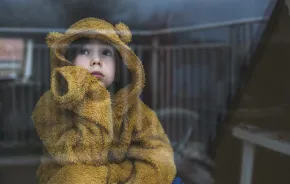
Choosing a preschool can feel daunting. Between the many preschools, piles of information and logistical considerations, it can be hard to focus on what really matters. Lets cut to the chase with these research-based findings on what matters most in a preschool. As you read, consider how each factor applies to your child and family.
Relationships (social-emotional growth)
Preschoolers feel safe and learn through stable, responsive, growth-promoting relationships. These relationships affect all aspects of their development — intellectual, social, emotional, physical, behavioral and moral. What to look for:
- Teachers with long tenures
- Ample opportunities for children to collaborate and work with each other
- Daily community rituals like circle time, sing-a-long and periodic community events that include parents
- Parents welcome in the classroom
Play
Play and learning cannot be separated. A child’s play is hard work. In play, children learn about themselves and gather skills, laying down essential cognitive, social, physical and emotional foundations. What to look for:
- Time for long-duration child-initiated play
- Open-ended materials like blocks, fabric and art supplies that change based on children’s growth
- Teachers who observe and respond to play with questions and offerings
- Outdoor play on multiple playscapes including structures and wooded areas
- Indoor play that invites coordination and balance through physical art forms like dance, gymnastics and yoga
Language development
 Preschoolers grow from budding users of about 200 words to language flirts in their preschool years. Language development is much broader than learning to read. In the early years, it is a social experience that lays the foundation for strong reading abilities. What to look for:
Preschoolers grow from budding users of about 200 words to language flirts in their preschool years. Language development is much broader than learning to read. In the early years, it is a social experience that lays the foundation for strong reading abilities. What to look for:
- Ample opportunities for self-expression through interactive peer-to-peer play
- Time for singing, poetry, storytelling and jokes
- Opportunities for drawing, sketching and writing
- Exposure to multiple languages
- Access to print in real-life situations and through books
Administration and professional development
Teacher satisfaction and retention has significant impact on the quality of care and education in preschools. What to look for:
- Commitment and continual support for teachers' professional growth through topical training and workshops
- Schedule prioritization for teachers to collaborate with each other and reflect on children’s growth
- Teachers have a voice and freedom in developing activities
- A board of directors and other community support for the preschool to innovate and evolve
Physical environment
Preschoolers are explorers. They learn best in an inviting, safe, engaging environment that they can manipulate easily. What to look for:
- A child-friendly environment with furniture at the height of the child and open spaces that allow for exploration and creation
- Carefully planned space that fosters independent self-care
- Children can easily access materials for play
There is no magic bullet, no manual to raise the mythical “perfect” child. Personalize your child’s preschool experience by considering how each of these factors applies to your child and family. After all, learning is a very personal experience.











